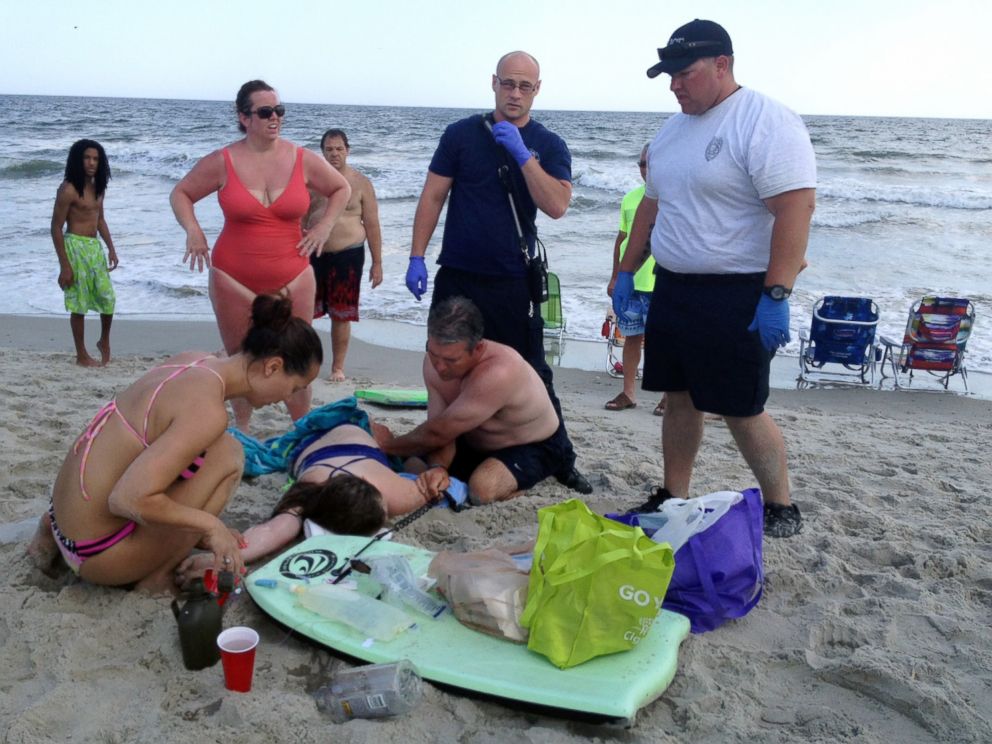How to Stay Safe From Shark Attacks Over Fourth of July Weekend
Tips from a former Green Beret and survival expert.
— -- If you're heading to the beach for Fourth of July fun this weekend, remember to be mindful of sharks.
Shark attacks were reported on both ends of the country in the past two months, from Vero Beach, Florida, to Newport Beach, California.
So whether you're on the East Coast or West Coast this weekend, experts say it's important to know how to stay safe in the water.
Here are some tips from former Green Beret and survival expert Terry Schappert.
1. Stay calm.
If you see a shark, don't thrash or scream, Schappert told ABC News last summer. Just turn around, get out of the water and tell everyone else to get out, he said.
Sharks pick up vibrations and smells, but they can't see you most of the time, Schappert said.
"The more you flail around ... [the sharks] are very attracted to that," Schappert said.
2. Have a plan.
Every beach-goer should have an evacuation plan, which includes knowing where the closest hospital is, Schappert said.
"Just think in your head, what would happen ... if someone you love just got bit? What now?" he said. "Don't be paranoid, but have a procedure. Think about how you'd get out of the water, then think about ... the chain of what would happen next."
"Try not to freak out," Schappert added. "But know it's a possibility."
3. Know first-aid.
Most shark bites are on the limbs, according to Schappert, and when a shark's mouth hits a swimmer's arm or leg, "it's bound to sever an artery."
"Shark bites are not smooth -- they're jagged -- which makes the wound worse," he said. And the more jagged the wound, the more it will bleed, so it's important to know first-aid.
"The best thing you can do for that person is to stop the bleeding," Schappert said, which, if the victim is bit on a limb, means applying a tourniquet.

In 2014, Schappert took ABC News' Matt Gutman swimming in shark-infested waters off the Bahamas.
To properly learn how to fend off sharks, Gutman pulled on 15 pounds of chain mail armour, and then put clothes on top to simulate real people’s finding themselves stuck in shark-infested waters after a plane or a boat crash.
Gutman and Schappert then did what experts say not to do: flapping around in waters where sharks were feeding, wearing regular clothing.
While they were in the water, Schappert's advice to Gutman was to:
1. Slow down your movements.
Fast movements give off the signal of prey, he said. Also conserving energy is key to survival in the above scenario.
2. Team up.
If there are two people in the water, Schappert recommended treading water back to back to limit the spheres of control by half, to 180 degrees each.
3. Fight back.
If the sharks begin attacking, fight them off, Schappert said.
He recommended striking the sharks using quick, downward punching motions.
"All you can do is fight and let them know, 'I am not going down easy,'" Schappert told Gutman.




